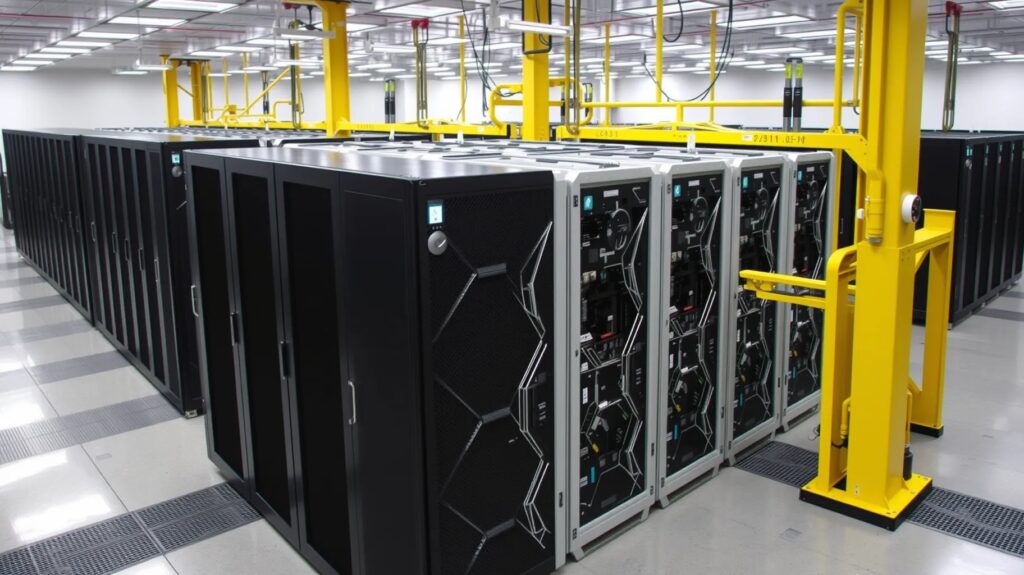
In a groundbreaking collaboration, Nvidia and Foxconn are joining forces to build the most powerful AI supercomputer in Taiwan.
This partnership signals a major shift in the tech landscape, as both companies leverage their expertise to accelerate artificial intelligence development on a massive scale. For Nvidia, known for its advanced AI hardware and software, teaming up with Foxconn—a global leader in electronics manufacturing—could set new standards in computing power and AI capabilities.
The goal? To create an AI powerhouse that will not only serve Taiwan but could have far-reaching impacts on industries around the world. The project aligns with Taiwan’s growing ambition to become a global hub for AI innovation.
Why Taiwan? Strategic Location and Talent
Taiwan’s rise as a major player in the technology sector makes it the ideal location for this ambitious project. The island is already home to some of the largest semiconductor manufacturers in the world, including TSMC (Taiwan Semiconductor Manufacturing Company), which powers many AI chips. With its well-established tech ecosystem and a highly skilled workforce, Taiwan is the perfect launchpad for cutting-edge AI advancements.
Additionally, Taiwan’s strategic importance in global electronics supply chains makes it a focal point for investments in AI and supercomputing technologies. The new Nvidia-Foxconn supercomputer will further cement Taiwan’s position in the global tech race.
The Role of Nvidia’s Advanced AI Hardware
At the heart of this collaboration is Nvidia’s AI hardware, especially its GPUs (Graphics Processing Units), which are key to powering AI workloads. Nvidia’s GPUs have long been the gold standard for AI training and inference tasks, making them the ideal choice for this project. The new supercomputer will likely be equipped with Nvidia’s latest chips, including the H100 Tensor Core GPU, which is designed to handle massive AI models and datasets with unprecedented speed and efficiency.
The AI supercomputer will be used for a variety of applications, including deep learning, natural language processing, autonomous systems, and more. These are essential technologies in industries such as healthcare, manufacturing, and finance.
Foxconn’s Expertise in Manufacturing
Foxconn, on the other hand, brings its expertise in large-scale manufacturing and hardware integration to the table. Known as the world’s largest electronics contract manufacturer, Foxconn’s role in this collaboration will likely involve assembling the hardware components for the supercomputer and ensuring that it meets the demands of large-scale industrial AI applications.
Foxconn has been aggressively expanding into AI and cloud computing sectors, looking to diversify beyond its traditional role as a supplier for tech giants like Apple. By collaborating with Nvidia, Foxconn aims to establish itself as a key player in the AI space, helping to drive the infrastructure needed for AI innovation.
Unleashing AI Innovation in Taiwan
The creation of the most powerful AI supercomputer in Taiwan will unlock enormous potential for local companies and startups working in AI. The Taiwan AI ecosystem will benefit from access to unprecedented computing resources, allowing businesses to train machine learning models faster and more efficiently.

The supercomputer will also play a key role in autonomous technologies. With Nvidia’s strong push into autonomous vehicles, the new AI infrastructure could accelerate the development of self-driving systems, not only in Taiwan but potentially for global automotive markets.
Moreover, industries like healthcare and smart manufacturing will also benefit. The ability to process and analyze large volumes of data will enable breakthroughs in medical research, disease prediction, and the optimization of production processes.
Future Implications for AI Development
The Nvidia-Foxconn partnership is more than just a technological upgrade—it is a symbol of Taiwan’s growing influence in the global AI landscape. With both companies working together, the AI supercomputer could set new benchmarks for computational power, enabling the development of next-generation AI models that will push the boundaries of what machines can do.
The long-term implications are profound. As AI continues to evolve and integrate into almost every aspect of life—from healthcare and finance to manufacturing and entertainment—having access to cutting-edge computational power will become essential. This project will likely inspire similar initiatives around the globe, as countries and corporations race to build the infrastructure necessary for the AI revolution.
For further reading on the Nvidia and Foxconn collaboration and Taiwan’s AI ambitions:
And check out this insightful video discussing Nvidia’s role in AI development: